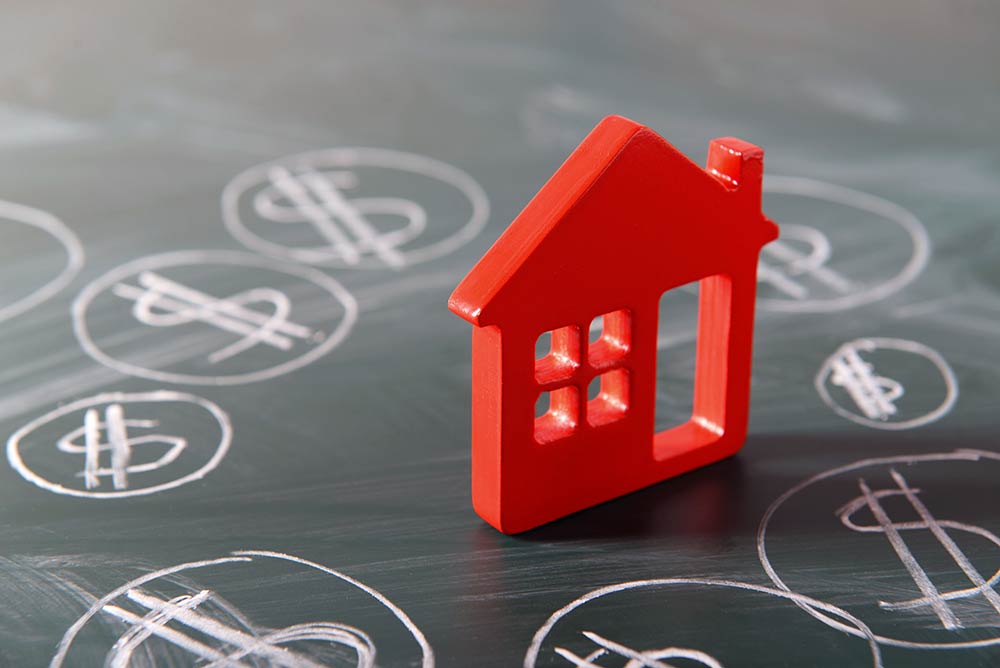Real estate value goes up and down and generally homeowners across Australia will have a rough idea of what their property is worth. Putting a price on your home can be tricky though, because sentiment can overpower logic and misguide your estimate. Or maybe you haven’t been paying attention to the market, and your home is worth a lot more than you thought it was.
The basic rule of sales is true with real estate – your home is worth exactly what someone is wiling to pay for it. But often you need to know the price of your home for reasons other than a sale. Maybe you’re thinking about re-mortgaging, or you’re buying an investment property and need to know what your current home worth. Maybe you’re just curious.
Whatever your reasons for needing to know, there are a number of factors that go into determining its value. Let’s take a look at them.
What Determines the Value of Real Estate in Australia?
Comparable sales in your suburb
Hop onto realestate.com.au and have a look at the recent sales in your area, preferably in the last four to six months. Look for similar houses to yours, in the same block if possible. You can be sure buyers will be doing the same when they consider what to offer for your home. Real estate agents will also have a look at comparable homes (or ‘comps’) to help inform their decision when they make an appraisal on your home.
Location
You need to look at location factors that appeal to the general public, not just to you or your family. I mean, it’s great that you live around the corner from your parents, but that won’t affect the value of your property at all. People look at how far they have to travel to amenities like shops, banks, restaurants and parks. Public transport options are important, as is the proximity of good schools.
The more convenient your home for a buyer and their family, the more positive will be the effect on its value.
Age and condition
Newer homes tend to have a higher value than older ones. Important parts of the home, such as the electrical wiring and the plumbing, will be in better condition and require less maintenance. Older properties may also have dated stylings that buyers will want to replace. The expense of this is factored into a value estimation.
Size of the property
There are a number of size factors that come into play. If the property is a free-standing home, the size of the block of land is important. How large the under-roof living space is will also be taken into account. People are always interested in how many bedrooms and bathrooms are in the property, as having more bedrooms is a key indicator of higher value.
Upgrades and renovations
Particularly on older homes, a renovation or upgrade can bring the value more in line with the cost of modern homes. Care is required here though, because if you overcapitalise on an upgrade you may not get the returns you wanted if you decide to sell to cover the costs. If you’re upgrading for the purpose of selling, you may want to get the advice of a professional real estate agent as to how much value it will add.
The Market Conditions
Prevailing market conditions are always going to be a major factor in determining real estate value. The market in Australia over the last year has been ‘hot’, meaning it’s a seller’s market where prices have been on the rise. Homes have been selling fast and for good prices. Depending what area you’re in, this isn’t always the case. The state of the market is going to have a huge impact on the value of your home.
Interest Rates
Lower interest rates means more people are attracted to home loans and more buyers are out there looking to make a purchase. More buyers equals more demand, which increases values. High interest rates will have the opposite effect because mortgages become less affordable.
Street Appeal
Eye-catching, welcoming street appeal gives a great first impression. An old, rundown home doesn’t create a feeling of value, whereas a fresh looking exterior and a well-kept garden does.
Potential for Growth
Buyers will often look at the potential of a home as well as what it currently offers. Is there space and scope for an extension? What renovations could they do internally? Can they add a swimming pool? Can and extra storey be added? The greater the potential for physical growth, the greater the upward pressure on a home’s value.
Investment Potential
Investors will look at a number of financial factors in a property. Is it easily rentable and does it offer good rental returns? Is it an area that’s likely to increase in popularity in the future? Can it be renovated and then sold at a profit? If the property ticks a lot of boxes for real estate investors, there is likely to be more interests in it from them that will drive the value higher.
These are just a few of the elements that come together to create a value for your property. If you have any questions about them or would like to chat about real estate in Brisbane or Australia, please get in touch with The Henry Wong Team® today. Henry would love to chat.




